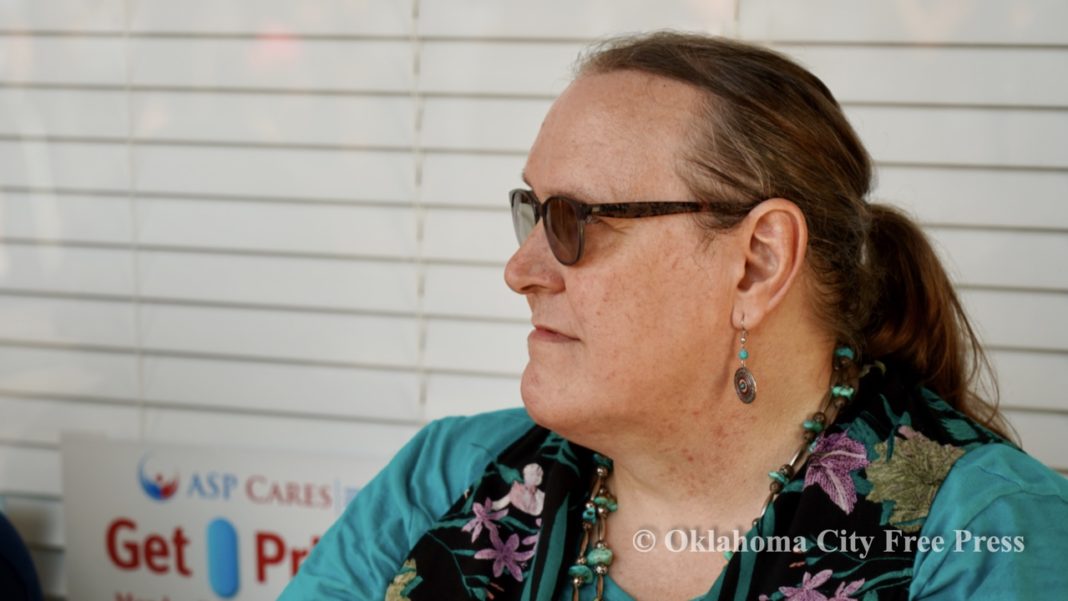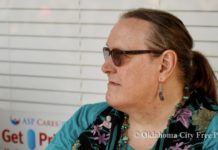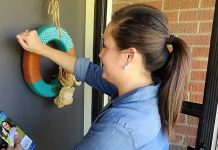Last Updated on January 5, 2024, 12:54 AM | Published: February 4, 2022
Paula Sophia Schonauer, LCSW, continues a serial memoir. If you haven’t read the earlier parts of this series, follow the links at the bottom of this page.
I have difficulty remembering the good times from childhood, perhaps because my family was not very good at documenting the good times. We weren’t a camera family, and we have almost no video or film footage of our lives. I have no idea what happened to the photos we did take. Whether they were lost or packed away and forgotten, I don’t know. However, I do know we weren’t the kind of family to take out photo albums to reminisce about old times, or to laugh at how we used to look, or to celebrate the things we accomplished.
There is an album I do have: baby photos, school photos, and some candid shots of me when I was small. I am struck by the photos of Mom holding me when I was not much more than a month old. She was obviously uncomfortable getting her picture taken, smile forced and sitting rigid with me in her arms. She had just turned nineteen, and she looked like a child herself – that youthful appearance, almost hopeful.
Mom had the same basic hairstyle all her life, a short bouffant she maintained with regular permanents and/or hair curlers she’d wear at night. I remember watching her put curlers in her hair many times, wanting to ask her to do mine, but, of course, my hair wasn’t long enough. She didn’t wear makeup very often, and she hardly ever wore dresses, choosing pants and t-shirts, sneakers, and overlarge jackets to detract from her weight because she always felt fat.
Mom dropped out of high school when she was sixteen, ashamed of being in the “slow kid class.” She carried this shame all her life, often expressing how she would never be as smart as other people. It seemed she had been labeled unjustly, but I do remember her difficulty with balancing the checkbook, the arguments she and Dad had about it. She also had problems following recipes, needing to be shown how to cook something, committing ingredients to memory. She had no confidence, no self-esteem, and I can’t help but feel sorry for the young woman in the photo, the abuse she would endure from my father over the next sixteen years.

I only have three photos of Dad, two of them from when he was a boy: a third-grade class photo and another from years later, perhaps fifth or sixth grade. He is not smiling in both, shy and troubled. In the group photo, he shows great discomfort with his classmates, standing in the second row, hands in pockets, slouching, with a nervous frown. The other photo reveals how handsome Dad was with tousled hair and earnest eyes, but he was frowning again as if preoccupied or intimidated. I know that kid. I was that kid. And I can see how trauma gets passed down through generations.
However, I do not know much about my father’s childhood, just impressions from stories told by other family members. Grandmother once told me about my grandfather’s neglect, about how Dad and his sister, Aunt Bobbie, would cry and cry waiting for their father to come home for a visit. Dad once described being tied to a pole in the backyard and whipped, but he never said by whom.
Dad was hit by a car when he was seven years old, losing the hearing in his right ear, but the most visceral memory he shared involved his sister. “She called me a creep,” he said, mouth twisted in pain, voice shaking in anger. I understood he had never forgiven her. As painful as it was to recall, it seemed there was some truth in Aunt Bobbie’s assessment.
The third photo of Dad is an old Polaroid from 1979 when we took a trip to Cedar Point, an amusement park outside Sandusky, Ohio.
We traveled there in a pickup truck owned by a woman named Darlene, but she preferred to be called Sis. Mom, Dad, and Sis rode up front while my sister, my brother, and I shared the truck bed beneath a snap-on tarp. We had been given a thin mattress for comfort. What started out as a fun ride turned sour when it started raining, and with the rain came a cold front with plummeting temperatures. By the time we arrived in Sandusky, my siblings and I were soaked and freezing despite the tarp.
The unseasonable cold snap lasted the duration of our stay in Sandusky, two nights in a Holiday Inn motel. We never went to the amusement park because the rain had closed most of the rides, especially the roller coasters, the reason for the whole trip. Instead, Mom, Dad, and Sis partied in the motel room while my siblings and I struggled to have fun. Dad slept with Mom and Sis in one of the beds, and at night I heard them giggling. It seemed they were a threesome.
The photo of Dad was taken by my sister while she played with Sis’s Polaroid camera one afternoon. We were listening to Casey Kasem’s American Top 40, Sis serenading Mom to the Cheap Trick tune, I Want You to Want Me. Dad actually smiled in the photo, showing his blackening teeth. He’s wearing a red button-up, and his hair appears flat and black, reflecting the flashbulb burst of light. The room behind him was not visible, a shroud of darkness, a curious affect that matched Dad’s disposition.
Previous episodes
- Manhood, from the inside out — Memoir and Mythology
- Part 2 — Cubby Hole
- Part 3 — Magic Carpet Cocoons
- Part 4 — Snips and Snails and Puppy-Dogs’ Tails
- Part 5 — Mirror
- Part 6 – Deep Water
- Part 7 – Limbo
- Part 8 – Dissociation
- Part 9 – Shame
- Part 10 – Judgement Day
- Part 11 – Inferno
- Part 12 – Haunted
- Part 13 – Did I say that?
- Part 14 – The end times
- Part 15 – Alone again (naturally)
- Part 16 – Welcome to Grey Town
- Part 17 — Stigma
- Part 18 — Turning the other cheek
- Part 19 — Malingering
- Part 20 — Rorschach
- Part 21 – Soft hands
- Part 22 — How real men talk
- Part 23 — Crash landing
- Part 24 — To make a fist
- Part 25 — To hurt another
- Part 26 — Showdown
- Part 27 — Savage aggression
- Part 28 – Heroic
- Part 29 — Fear of death
- Part 30 — To be an android
- Part 31 — Too old for toys
- Part 32 — Her eyes
- Part 33 — A bedtime story
- Part 34 –- Sacrifices
- Part 35 — don we now our gay apparel
- Part 36 — Aspirations
- Part 37 — Doing the math
- Part 38 — Baseball rebels
- Part 39 — Climbing Mount Maslow
- Part 40 — Dear mom
- Part 41 – O Holy Night
- Part 42 — Chrysalis
- Part 43 — The Pain of Loneliness
Guest Columnist Paula Sophia is a licensed clinical social worker in Oklahoma City and a former Oklahoma City Police Officer.







